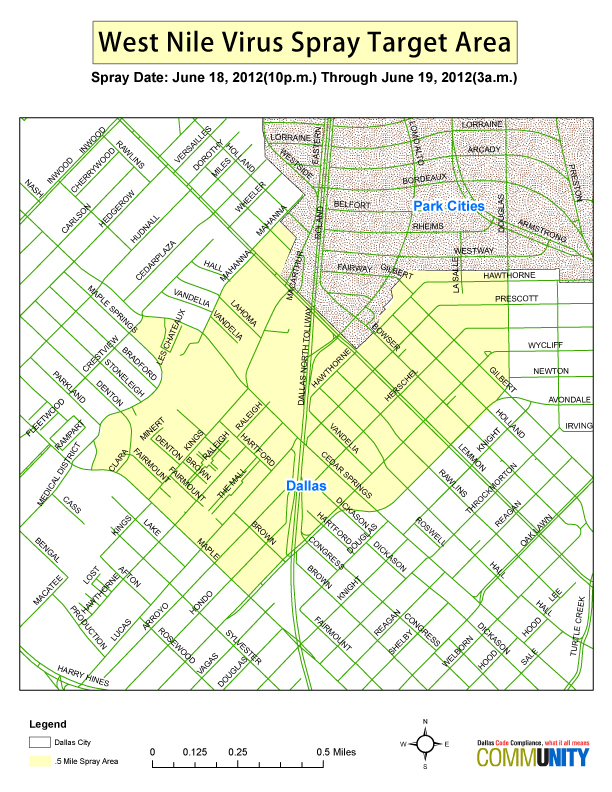Mosquitoes carrying West Nile virus were found in the Wycliff/Maple area in Oak Lawn and city crews will spray in the area for mosquitoes on Monday night.
Because of a mild winter and wet spring, West Nile virus is active two months early this year and has been found in mosquitoes in 10 areas in Dallas.
The city will spray the area from 10 p.m. Monday night to 3 a.m. Tuesday morning.
West Nile virus can be particularly dangerous to people with HIV.
“West Nile is a concern to HIV-negative and -positive [people],” said Bret Camp, health services director for Resource Center Dallas. “Any co-infection has the potential to exacerbate the situation and make someone have a more serious condition.”
During the overnight spraying, keep pets inside, vehicle windows up and don’t follow the trucks, Dallas city spokesman Jose Luis Torres said.
“The truck sprays up, shoots 180 degrees and it spreads like smoke,” Torres said.
He said if anyone comes in contact with the spray, wash with soap and water.
The area to be sprayed is bounded by Maple Springs Boulevard, Mahanna Street, Maple Avenue, Wycliff/Douglas Avenue and Lemmon Avenue.
Wearing long-sleeved shirts or spraying with a mosquito repellant containing DEET, as well as community spraying programs, are the best ways to prevent West Nile virus.
According to the Centers for Disease Control, there are no specific treatments for the virus.
The virus was identified in Uganda in 1937 and first found in this country in New York in 1999.
Most people who get the virus develop no symptoms.
Those who contract a mild form of the virus will experience abdominal pain, diarrhea, fever, headache, lack of appetite muscle aches, nausea, rash, sore throat, swollen lymph nodes and vomiting. These symptoms can persist three to six days.
Persons with a weakened immune system may develop a more severe form of the illness so people with HIV are at particular risk. Severe cases may result in death.
Those more severe symptoms include confusion or change in ability to think clearly, loss of consciousness or coma, muscle weakness, stiff neck or weakness of one arm or leg.
















